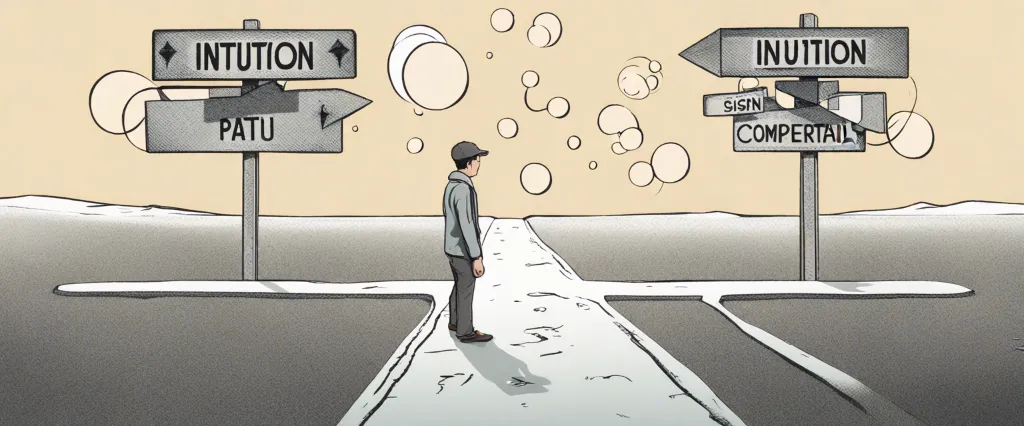
Title: A Comparative Study: “Nudge” and “Misbehaving” by Richard H. Thaler
Introduction:
In the realm of behavioral economics, the works of Richard H. Thaler have significantly influenced our understanding of human decision-making. Thaler, a prominent economist and Nobel laureate, has dedicated his career to unraveling the complexities of human behavior and illuminating the ways in which individuals deviate from rationality in their decision-making processes. Two of his most influential books, “Nudge” and “Misbehaving,” have garnered widespread attention and acclaim for their groundbreaking insights into the field of behavioral economics.
In this comparative study, we delve into the core concepts, methodologies, and practical implications presented in both “Nudge” and “Misbehaving.” By examining and contrasting these works, we aim to discern the shared themes and divergent perspectives that underpin Thaler’s groundbreaking exploration of decision-making in economic contexts.
Nudge,” co-authored by Cass Sunstein, focuses on how small design changes in environments and choice architectures can significantly influence individual behavior. Through the concept of nudging, Thaler and Sunstein propose a libertarian paternalistic approach that subtly encourages individuals to make better choices without infringing upon their freedom. The book illuminates how these nudges can be employed to enhance important societal domains such as healthcare, retirement savings, and education. The authors argue that by understanding the cognitive biases and heuristics that affect human behavior, policymakers and institutions can foster improved outcomes and individual welfare.
In contrast, “Misbehaving” takes a more personal and introspective approach. Thaler delves into his own journey as an economist deviating from the traditional rational actor framework, highlighting the significance of his behavioral economics research. The book not only examines the various psychological biases and anomalies that plague human decision-making but also stresses the importance of rigorous experimentation and empirical evidence in challenging established economic theories. Thaler provides vivid anecdotes, using humor and wit to engage readers in his quest to uncover the “misbehaving” nature of human beings and the transformative potential this discovery holds for economic theory and policy.
With both books offering profound insights into the field of behavioral economics, this comparative study aims to unravel the shared foundations, significant divergences, and overall contributions of “Nudge” and “Misbehaving.” By critically analyzing their core principles, methodologies, and real-world applications, we intend to shed light on Thaler’s invaluable contributions to the field and provide a comprehensive understanding of his groundbreaking work.
Through this comparative analysis, we hope to contribute to the growing literature on behavioral economics, encouraging further exploration and discussion surrounding the intersection of human behavior, decision-making, and economic theory as presented by Richard H. Thaler in “Nudge” and “Misbehaving.”
Brief Summary of Two Books
Nudge by Richard H. Thaler
“Nudge” by Richard H. Thaler and Cass R. Sunstein is a book that explores the concept of behavioral economics and how small changes, or nudges, can lead individuals to make better choices for themselves and society. Thaler and Sunstein argue that people’s decisions are often influenced by biases, limited information, and irrational thinking, which can lead to suboptimal outcomes. They propose that by designing the environment and decision-making processes in a way that makes it easier for people to make beneficial choices, individuals can be nudged towards better outcomes without limiting their freedom of choice. The book provides numerous examples of nudges used in various contexts, ranging from saving money, improving health, promoting energy conservation, and enhancing retirement savings. It also delves into the ethical considerations and potential pitfalls of nudging and offers practical suggestions for policymakers, individuals, and institutions interested in using nudges to shape behavior. Overall, “Nudge” sheds light on how behavioral science can positively influence decision-making and help people lead happier and more successful lives.
Misbehaving by Richard H. Thaler
“Misbehaving” by Richard H. Thaler is a groundbreaking book that explores the field of behavioral economics. Thaler, a renowned economist, challenges the traditional assumption of rational economic behavior and highlights how human psychology often leads us to make irrational decisions. Thaler introduces concepts such as the “nudge theory,” which suggests that small changes in the way choices are presented can have a significant impact on decision-making. Through engaging anecdotes and research findings, Thaler dives into the irrational behaviors of both individuals and institutions, shedding light on topics like biases, heuristics, and the importance of self-control. By acknowledging the limitations of traditional economic models and incorporating behavioral insights into the decision-making process, Thaler presents a compelling case for a more realistic and beneficial approach to economics. In summary, “Misbehaving” challenges the fundamental assumptions of traditional economics and offers an intriguing and eye-opening perspective on human behavior and decision-making.
Comparison between Two Books

Similarities in Economics
Both “Nudge” and “Misbehaving” are written by Richard H. Thaler, a renowned economist and behavioral scientist. These books share several similarities in their exploration of economics.
First and foremost, both books focus on the concept of behavioral economics. Thaler emphasizes the importance of understanding human behavior and decision-making in the field of economics. He argues that traditional economic theories often fail to capture how individuals actually make choices, and thus he proposes incorporating insights from psychology to better explain economic outcomes.
Additionally, both books discuss the idea of irrationality in economic decision-making. Thaler challenges the assumption of perfect rationality in traditional economics and instead presents evidence of biases, heuristics, and cognitive limitations that shape our choices. He explains how these irrational behaviors can lead to suboptimal outcomes and suggests ways to improve decision-making.
Another common theme in these books is the concept of nudging. Thaler introduces the notion of a “nudge” as a way to gently guide individuals towards making better choices without restricting their freedom. Both books explore the use of nudges and behavioral interventions in various contexts, such as healthcare, retirement savings, and public policy. Thaler advocates for aligning choice architecture with individual goals to help people make decisions that are in their best interests.
Furthermore, both books highlight the importance of empirical evidence in economics. Thaler incorporates evidence from experiments and real-world observations to support his arguments. He emphasizes the need for economists to move beyond pure theoretical models and to consider the actual behavior of individuals when designing economic policies.
Overall, the similarities between “Nudge” and “Misbehaving” lie in their focus on behavioral economics, the questioning of traditional economic assumptions, and the exploration of nudging as a means to improve decision-making. These books provide readers with valuable insights into the intersection of psychology and economics, challenging conventional economic thinking and offering new approaches to enhance individual and societal outcomes.
Divergences in Economics
“Nudge” and “Misbehaving” are both written by Richard H. Thaler, a prominent economist and Nobel laureate. While both books explore the field of behavioral economics and delve into similar topics, they differ in their focus and approach.
“Nudge” is primarily focused on the concept of nudge theory, which involves designing policies and systems that modify people’s behavior in a predictable and positive way. Thaler, along with co-author Cass Sunstein, discusses how subtle changes in choice architecture can lead individuals to make better decisions that align with their long-term goals. The book emphasizes the importance of libertarian paternalism, where individuals are free to make choices, but are guided towards better outcomes without being forced. “Nudge” provides various examples of successful nudges, such as default options, prompts, and framing techniques, and examines their impact on decision-making.
On the other hand, “Misbehaving” delves deeper into Thaler’s personal journey as a behavioral economist and covers a broader range of topics within the field. The author provides a historical account of the evolution of economics, highlighting how traditional economic theories often fail to account for real-world human behavior. Thaler challenges the assumption of rationality in economic models and introduces concepts like bounded rationality and bounded self-control. The book also explores the implications of these insights in terms of policy-making, finance, and other economic areas. Unlike “Nudge,” “Misbehaving” is more autobiographical, weaving personal anecdotes and stories into the narrative.
While both books discuss the shortcomings of traditional economic theories and advocate for a more realistic understanding of human behavior, “Nudge” focuses on applying behavioral economics to public policy, while “Misbehaving” offers a broader examination of the field itself. “Nudge” offers specific strategies and techniques for designing policies, while “Misbehaving” presents a more comprehensive overview of behavioral economics and its implications. Thus, the main divergence in these books lies in their emphasis and scope.

Conclusion
Both “Nudge” and “Misbehaving” by Richard H. Thaler are highly regarded books within the field of behavioral economics. Ultimately, the choice of which book to read depends on your specific interests and preferences.
Nudge” is a more practical and accessible book, co-authored with Cass R. Sunstein. It explores how small, subtle changes in the way choices are presented can significantly impact people’s decision-making processes. Thaler and Sunstein propose the concept of “choice architecture” and provide real-world examples of how it can be used to improve people’s decisions in various domains, such as healthcare, finance, and public policy.
“Misbehaving” is a more academic and autobiographical book, through which Thaler recounts his journey within the field of economics and shares his insights on the limitations of traditional economic theories. He challenges the notion of humans as perfectly rational decision-makers and explores the role of psychology and behavioral economics in understanding economic behavior.
If you are interested in the practical applications of behavioral economics and how to design better decision environments, “Nudge” is a great choice. On the other hand, if you are more interested in the theoretical foundations and the evolution of behavioral economics as a field, “Misbehaving” would be a more suitable option. Ultimately, you may find it beneficial to read both books, as they provide complementary perspectives on the subject.



